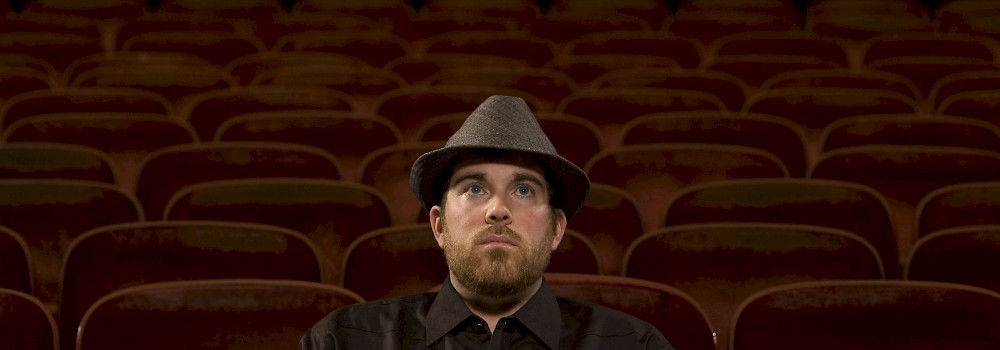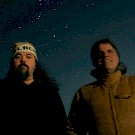 Chris Robley is no stranger to the Portland music scene: Before his recent move to the other Portland (where the man of many talents just received the Maine Literary Award in poetry), he spent a decade on the Left Coast, working with artists including Vortex’s own Arthur Parker. The Great Make Believer was actually recorded with Rob Stroup as the engineer at a friend’s beach house in Seaside. Robley admits he borrowed the bass line in “Mission Bells” from a Rob Stroup and the Blame song, “Glass Ceilings,” which he first heard the band play at Biddy McGraw’s. “At some point during the drunken walk [home],” he says, “I started changing the chords and melody in my head—and by the time I was home I had a new song with a handful of new lyrics, too.”
Chris Robley is no stranger to the Portland music scene: Before his recent move to the other Portland (where the man of many talents just received the Maine Literary Award in poetry), he spent a decade on the Left Coast, working with artists including Vortex’s own Arthur Parker. The Great Make Believer was actually recorded with Rob Stroup as the engineer at a friend’s beach house in Seaside. Robley admits he borrowed the bass line in “Mission Bells” from a Rob Stroup and the Blame song, “Glass Ceilings,” which he first heard the band play at Biddy McGraw’s. “At some point during the drunken walk [home],” he says, “I started changing the chords and melody in my head—and by the time I was home I had a new song with a handful of new lyrics, too.”
 Robley records with friends from Portland's music scene, including members of Moody Little Sister (left) and Arthur Parker (second from right): Photo courtesy of Yellow Room RecordingIt’s clear that other local artists have had a profound influence on Robley and, moreover, have helped him honor the communal spirit of our local music culture. (In addition to Stroup engineering, Robley essentially had all the members of the Blame help record The Great Make Believer.) But his own connotation of church bells is what drives the dark story in “Mission Bells”:
Robley records with friends from Portland's music scene, including members of Moody Little Sister (left) and Arthur Parker (second from right): Photo courtesy of Yellow Room RecordingIt’s clear that other local artists have had a profound influence on Robley and, moreover, have helped him honor the communal spirit of our local music culture. (In addition to Stroup engineering, Robley essentially had all the members of the Blame help record The Great Make Believer.) But his own connotation of church bells is what drives the dark story in “Mission Bells”:
“Sometimes when I hear church bells I think about how they were once used to regulate daily life, marking the hours, calling folks to mass, signaling lunchtime and the end of the workday. A vestige of another age. Now when they’re ringing in the distance, I feel a kind of disconnectedness and longing in the sound… the way we keep wanting things we can’t have, or that had us once and won’t have us back. 'Mission Bells' is a lovelorn song set in a church, which I thought was a funny place to have someone consecrate themselves to ‘the Flesh,’ as you might hear it called in some creepy Catholic litany, forever and ever, amen.”





